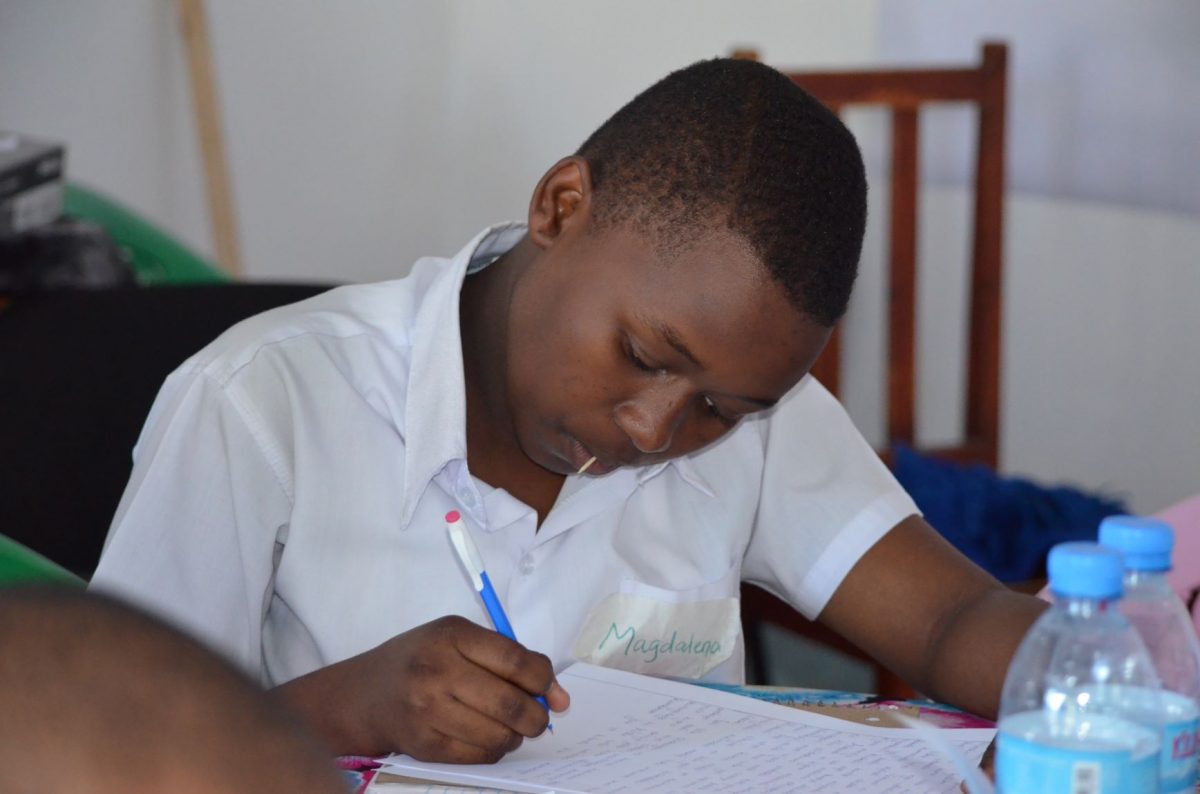Scope
The workshop took place on Saturday August21st, 2016 at Soma Book Café and lasted six hours. It was led by the Soma Executive Director (female) and Project Manager (male) and was attended by 3 female Facilitators, 2 female teachers, 1 male teacher (teachers absented themselves for long hours to give students freedom of expression and the male teacher remained outside throughout the session) and 18 female students who were selected from the school level workshop. The Facilitators’ Guide (Appendix A) was used blending the content and creative writing technique with more hands on, feedback and more hands on.
Objectives
- Further explore effective role of literature in raising social consciousness and volition to bring about change;
- Strengthen creative writing techniques;
- Collectively edit and revise 4 short stories and 2 poems to get a refined version to be read at the public event;
- Document the workshop through pictures, videos and student interviews to be used on social media and exhibition at the public event.
Process and Outcomes
Participants accomplished the following:
- Gained an understanding of various aspects of creative expression;
- Specifically, short stories and poetry
- Explored the role of literature as an effective media for consciousness raising and soliciting action for change;
- Practiced with different creative writing techniques;
- Ownership of a story (voice, knowledge and experience, emotional engagement, originality)
- Showing not telling (descriptions, dialogues, scenery/context, development of characters to drive the story
- Expression of feelings (imagery and other artistic expressions to depict scenes and moods targeting all the five senses)
- Reviewed 6 literary works (4 short stories and 2 poems) and identified areas of improvement on each. Some areas of improvement identified were:
- Story/poetry lacked a heading or a captivating heading;
- Story/poetry lacked a stronger beginning or ending which discouraged the reader from reading.
- Story/poetry did not follow creative writing principles specific for the genre
- Plot not well developed, unrealistic and lacked organization of thought
- Language use was more of ‘telling’, than ‘showing’. For instance, ‘showing’ instead of describing actions and gestures that shows to the reader that the character is afraid, the storyteller tells the reader that the character was afraid. Also works were not strong on imagery.
- Edited and revised each literary work to improve on the techniques so as to enhance form and content of the final drafts to be presented at the public reading event (weaknesses were rectified within the limit and scope of the workshop).
- Each revised version was read in front of the group and compared with original version to get additional feedback.
- Decided who would read each short story and poem at the public reading and dialogue event based on interest and school representation (See Project Video and Audio Book).

